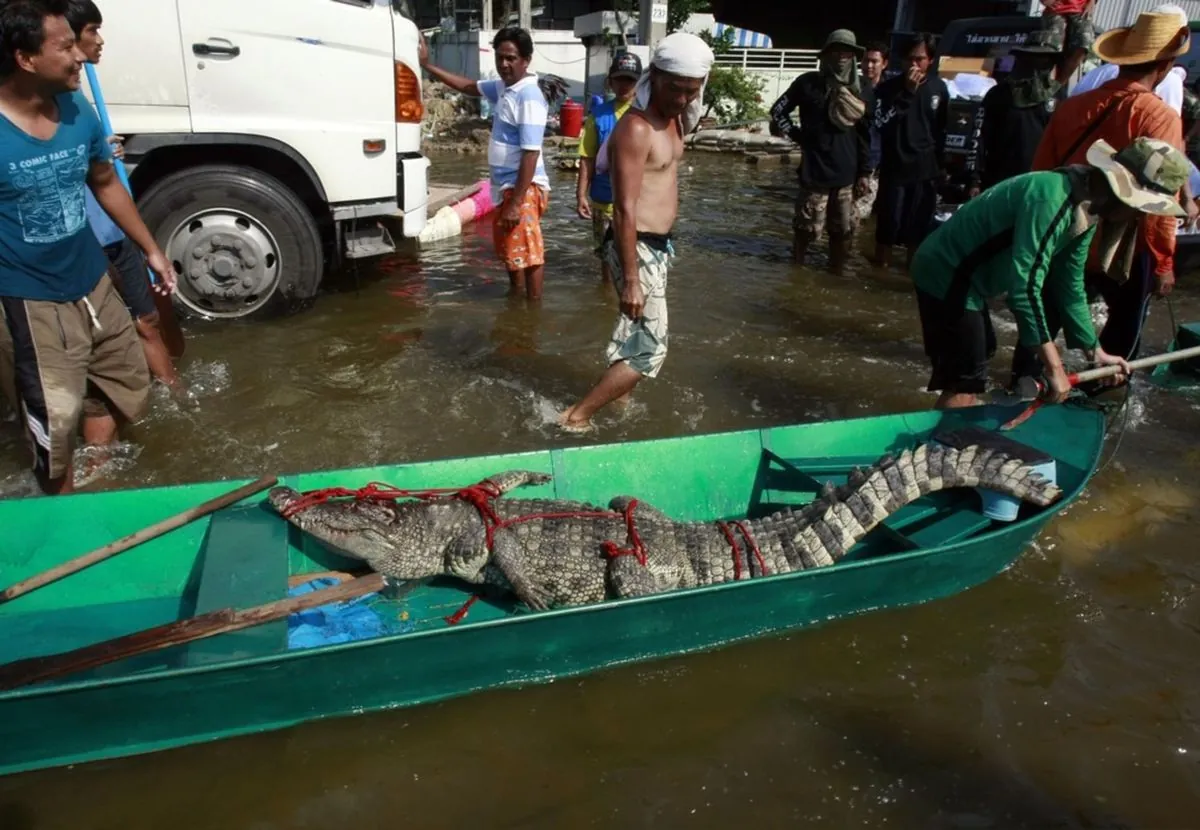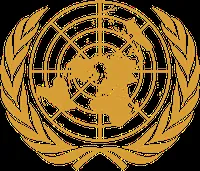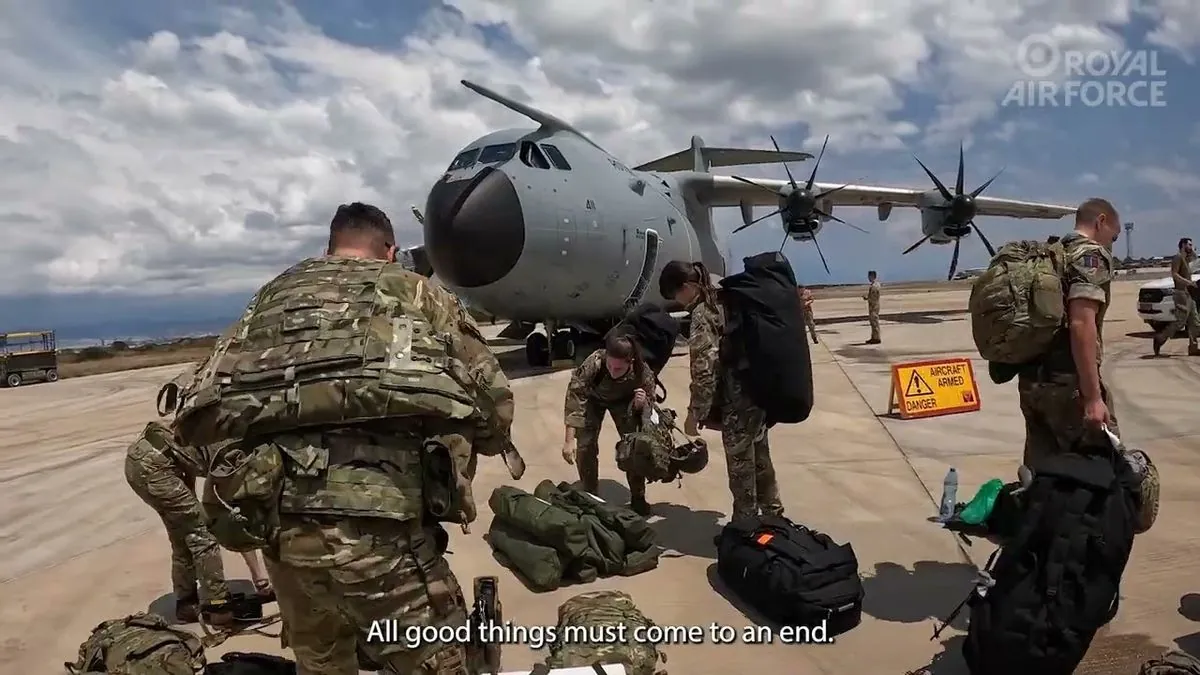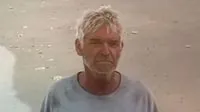Thai Farmer Culls 100 Crocodiles Amid Flood Fears
A Thai farmer has slaughtered 100 crocodiles to prevent their escape during severe flooding. The decision comes as Typhoon Yagi's aftermath continues to impact Southeast Asia, with Myanmar facing significant challenges.

In a drastic measure to ensure public safety, a farmer in northern Thailand has made the difficult decision to cull approximately 100 crocodiles. Natthapak Khumkad took this action due to concerns that the reptiles might escape during severe flooding and pose a threat to nearby residents.
The decision came after heavy rainfall damaged part of the crocodile farm's enclosure, raising fears that the large reptiles, some as old as 17 years, could break free. Khumkad explained his reasoning in a Facebook post, stating, "Prevention is better than fixing it later." The farmer estimates the financial impact of this decision at around 1.4 million baht (approximately £32,000) in lost revenue.
This incident highlights the challenges faced by Thailand's agricultural sector, which is particularly vulnerable to flooding. The country's monsoon climate, characterized by distinct wet and dry seasons, often leads to such extreme weather events. Climate change is expected to exacerbate these conditions, potentially increasing the frequency and intensity of storms in Southeast Asia.

The flooding in northern Thailand is part of a larger crisis caused by Typhoon Yagi, which made landfall in early September 2024. Typhoons, the term used for tropical cyclones in the Northwest Pacific Ocean, typically occur between June and November in this region. The aftermath of Yagi has been devastating, with an estimated 750 fatalities across Southeast Asia.
Myanmar has been particularly hard-hit, with at least 300 reported deaths and 100 injuries. However, the true toll may be significantly higher due to ongoing civil conflicts that have plagued the country since its independence in 1948. The United Nations Office for the Coordination of Humanitarian Affairs (OCHA) reports that approximately 887,000 people have been affected nationwide by the storm.
Response efforts in Myanmar face numerous obstacles, including physical constraints such as blocked roads and damaged bridges, as well as ongoing clashes. These challenges underscore the complex interplay between natural disasters and political instability in the region.
The Greater Mekong Subregion, which includes Thailand and Myanmar, is known for its rich biodiversity. However, this ecological wealth is increasingly threatened by extreme weather events and human activities. The Siamese crocodile, one of two crocodile species native to Thailand, is critically endangered in the wild due to habitat loss and hunting.
While Khumkad's decision to cull his crocodiles was driven by immediate safety concerns, it also reflects the broader challenges facing wildlife conservation and sustainable farming practices in the face of climate change. As the region continues to grapple with the impacts of Typhoon Yagi and future storms, balancing human safety with environmental preservation will remain a critical challenge.
"I consulted my family and close friends and came to a unanimous decision. Normally I don't give in, but after thinking about it from many angles and weighing it for quite some time, it's the best choice at this point. I really had to."
As Southeast Asia works to recover from this latest disaster, the international community must consider how to better support vulnerable regions in adapting to increasingly severe weather patterns while protecting both human lives and fragile ecosystems.


































